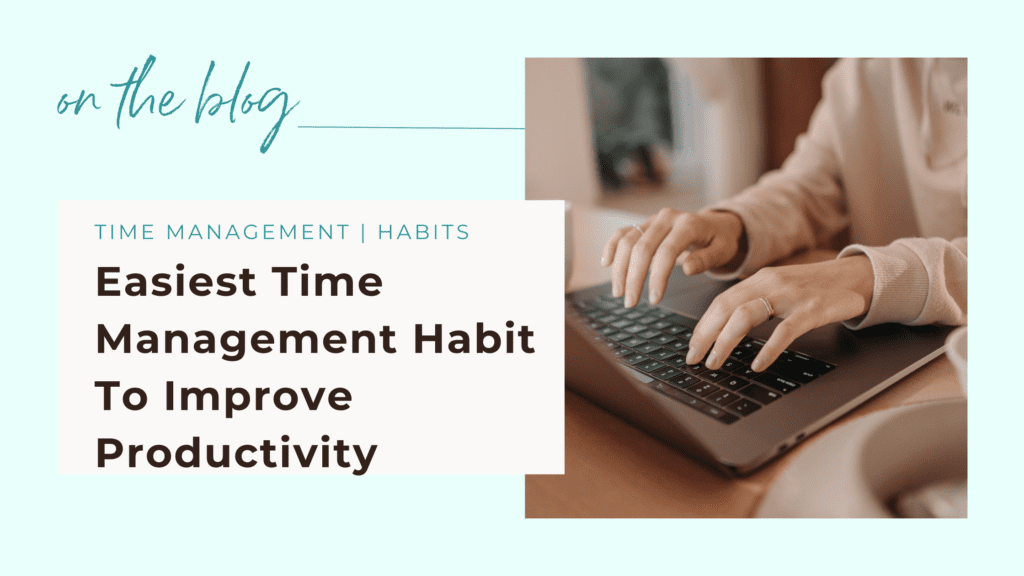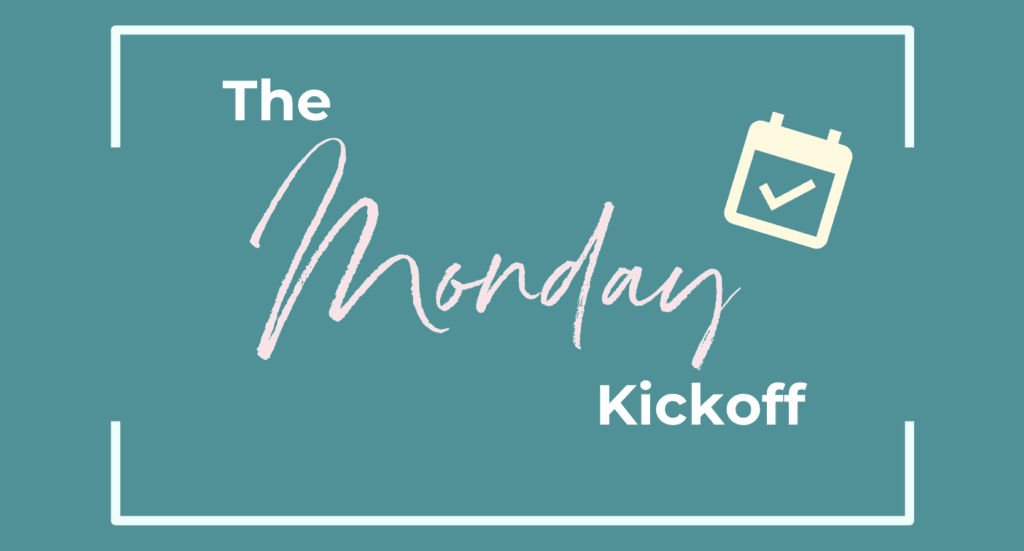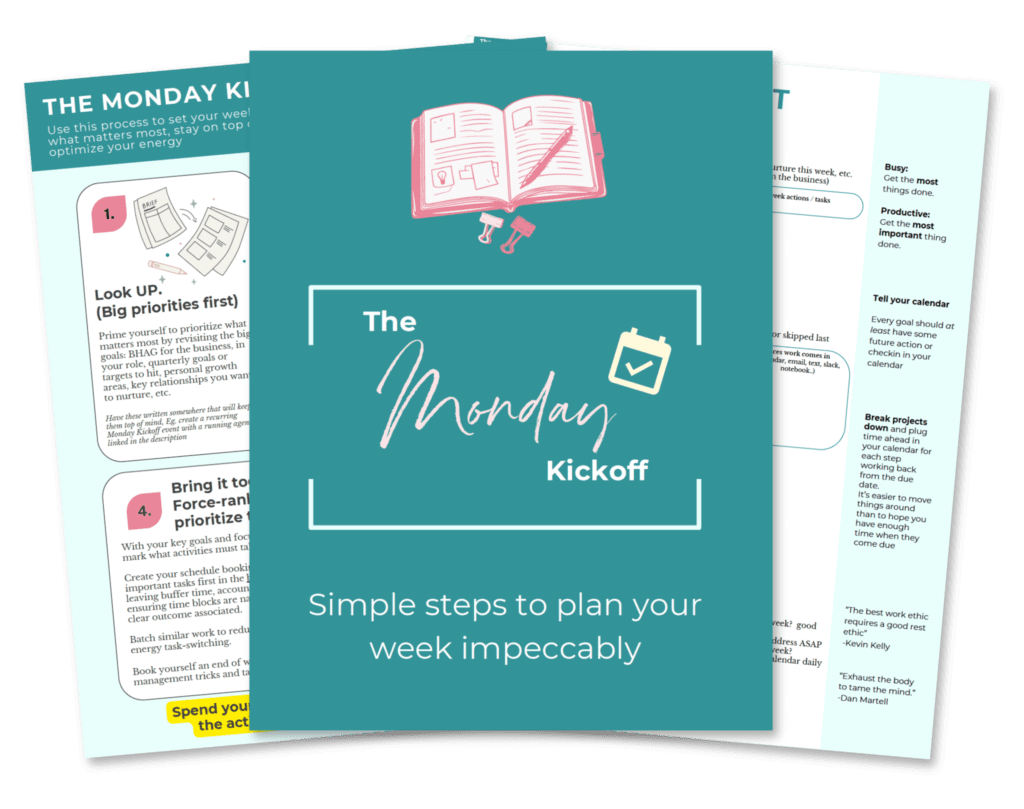
Is this you?
It’s Monday morning, you sit down at your desk and fire up your laptop to start the week.
You open your email first, take mental note of the number of unread, estimating you can likely dismiss/delete 20 of them that will get actioned by someone else, but you’ll have to read them and double check before you make a plan and figure out what time between meetings you’ll have to work on what comes up.
You wonder how much time you have before your first meeting, check your calendar, sigh about how full it is and secretly wish you had declined some of the meetings and projects that have now come due or at least put a placeholder in for lunch.
You take a slug of your coffee and vow to focus *hard* on getting through the urgent stuff and then plan to make headway on that other big project you keep meaning to get to – you check again its due date – 3 weeks out – and think ‘that’s 15 work days, plenty of time to fit it in before then’.
Just then the phone rings: it’s your boss, wanting you to brief her before the meeting starting in 25 mins.
You make a mental note “Guess I’ll check the rest of my emails after that.. and I must remember to advance big project too this week..”.
“Sure thing!” you say, and pull up your mostly-complete notes to go on.
You think to yourself ‘next time I should leave a buffer before that meeting to brief boss before she asks’, and file that away in your mind to (magically) remember for next week.
“Next week there will be more time…”
How many times have we all thought or heard that most well-intentioned delusional thought!?!
And just like that, you’ve started another week on your back foot, in reactive mode, doing your best to react to the requests rolling in from your team, getting reminded of commitments of yours through emails and slack messages popping up, and glances ahead at the rest of the day and week in your calendar.

You mentally envision a couple times you might be able to squeeze a workout in at lunch or get out on time for one at the end of the day, hoping the timing gods will let it happen this time!!
But the road to hell was paved with good intentions, as they say.
You know there’s a good chance that blank space will get scooped up by some meeting for something that does not move the dial for you in your role.
Now another week has started and you are putting your needs last (even though you know you do your best work when you’re well fed, rested and exercised!).
It’s a cycle we can all relate to slipping into.
Planning > Hoping
There are several ways to safeguard yourself from slipping into this ‘reactive mode’.
- Knowing AND reminding yourself regularly of your goals / priorities
- Having pieces of scaffolding / a framework in your schedule to easily access great work from yourself
- Setting guardrails and supports to keep yourself focused and spending time well.
Knowing your priorities and energy needs in advance will help you easily dodge distractions and get the most out of your week without burning out.
If you decide what you’re saying ‘yes’ to in advance, it helps you not accidentally overcommit to lower-value activities.
Deciding your ‘yes’ in advance makes ‘no’s easier since it provides a clear opportunity cost of agreeing to something else.
Bonus it can tip you off as to great language to use to decline things that don’t align: “The priority for my role is to xyz so in order to ensure that has the time it needs I can’t uvw that this week.”
Your energy is a key piece as well.
It doesn’t matter how ‘productive’ your calendar looks if you show up on an empty tank
It’s easy (and common) to treat our calendar like one big to-do list (or worse, someone else’s…) assuming any task can be done at any time at the same level.
You are not a robot.
But you are not a robot, you are a human whose energy ebbs and flows. Don’t ignore that – optimize for it!
For example, protecting your peak performance times (first thing in the morning, for many of us) for what matters most will deliver outsized results and introduce more ease and clarity. I used to say at my old job “all my 3-pointer ideas happen between 7 and 10am so that is when you want me in a brainstorm”.
Aligning your best energy with your most important work is one of the single strongest levers to pull to level up your output.
The more strategic you become with your time, the more you build confidence watching yourself decide your top priority, and follow through, the better results emerge.
And on the other ‘life’ side of the time equation. I noticed that as we created more and more constraints around the workday for my exec (5-7pm family time, 230pm daycare pickup one day each week, no meetings Wednesdays…) the tighter constraints actually applied pressure to get clarity on what needs focus.
Constraints force clarity.
Clarity on exactly what activities will move the dial, on that your ‘lanes’ are. So you know what isn’t. So you can ensure you create the most impact you can, in your unique role with your unique skills, gifts and purpose.
The thoughtful ‘yes’ protects you from saying ‘yes’ to what should have been a no – both this week and into the future!
“The Right Now Test”
This is a framework for saying no. There is a mental trick / trap where we overestimate how much time we’ll have in the future and therefore say yes to things that when the time comes, we regret taking on.
The consequences are too far away for us to consider them a problem.. so we need to bring them closer.
This is a great sniff test for whether you should say yes. Ask yourself “Would I do this right now?” i.e. Today or tomorrow. Is yes, go ahead and book it in. If no, decline.
Sahil Bloom talks about this in a recent newsletter (sign up for Curiosity Chronicles here), it originally came from the ‘Yes…Damn” effect from Gal Zauberman of UNC and John Lynch of Duke.
Remember every ‘yes’ that commits some amount of your time or attention is a ‘no’ to every other possible option you could have spent that time on.
“Don’t write a time check your future ass can’t cash (or won’t want to)“
‘Yes’ to That Means ‘No’ to Every Other Possible Option. So think with discernment, even into the distant future.
Now that we have established that up front planning can save a multitude of headaches and time-wasters…
Here’s a method to kick off your week on the front foot.
Plan your week on your terms.
I developed this Monday Kickoff process as an executive assistant needing a way to rapidly get my exec focused for the week, ensure we agreed on priorities and no balls got dropped.
I believe its simplicity is what makes it stick (4 Steps: Up, Down/In, Back/Ahead)).
This ‘meeting with yourself’ may become your most impactful practice to front-load decisions and easily adapt and refocus when life happens.
The process goes like this (visualize your head on a swivel, in this order if it helps):
The Monday Kickoff
- Look UP
- Have your goals and priorities top of mind first, ensure those items get first dibs on your time. Dial-movers, personal growth, etc.
- Look DOWN (or INWARD)
- This is not woo-woo. What do you, the human, need in order to do your best work? Think nutrition, sleep, recovery, stress management, exercise, connection to recharge, etc.
- Look BACK, Look AHEAD
- At your calendar, at all the places work comes in (like email, Teams, text). Tally up open loops, follow ups, works in progress, events or meetings requiring your touch, etc.
- Put it all together in the final step of Your Monday Kickoff
- Cross-reference, look at your calendar this week, make your plan.
I created this Monday Kickoff Worksheet as a free gift to guide you.
Use this process to set your week up for success, prioritize what matters most, stay on top of your commitments and optimize your energy

An easy way to set yourself up for success is to set a recurring calendar event for yourself (Friday, Sunday, Monday first thing – whatever time fits best for you), attach the worksheet in the description or create yourself a running agenda with the steps. Bonus if you encourage a friend or colleague to do the same and hold each other accountable or share each other’s priorities weekly.
Time is yours,
Maddie






